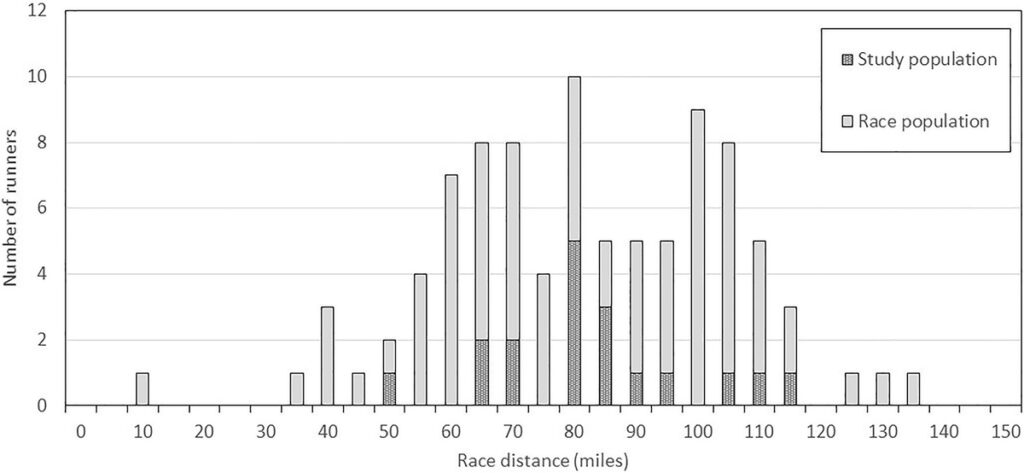Understanding Nutritional Needs in Ultra-Endurance Running
Ultra-endurance running poses significant nutritional challenges for athletes, particularly when covering distances exceeding 100 miles or participating in time-limited events like 24-hour races. The management of nutrition before, during, and after events plays a critical role in delaying fatigue and maximizing performance. It is essential to implement effective nutritional strategies tailored to the specific demands of these extreme events.
The Importance of Carbohydrate Intake
Current recommendations for carbohydrate (CHO) intake suggest that ultra-endurance athletes should consume between 8 to 12 grams of carbohydrates per kilogram of body weight in the 36 to 48 hours leading up to an event to optimize muscle glycogen stores. Additionally, a pre-race meal should provide another 1 to 4 grams per kilogram of body weight within the last 1 to 4 hours before the race begins. During exercise that exceeds two hours, ingesting exogenous carbohydrates can prevent hypoglycemia and enhance endurance capacity. Moreover, consumption of multiple transportable carbohydrates (MTCs) at a rate of up to 90 grams per hour during prolonged events has been encouraged, although this target can be difficult for many ultra-runners to achieve.
Variability in Carbohydrate Consumption
Research shows that carbohydrate intake among ultra-runners varies significantly, with reported consumptions ranging from 25 to 71 grams per hour across elite and non-elite groups. An interesting trend is observed; elite runners typically consume higher quantities of carbohydrates than their slower counterparts. Finishers also tend to intake more carbohydrates than non-finishers, indicating that proper carbohydrate consumption is linked to performance outcomes. However, despite these findings, many ultra-runners consume less than the recommended amounts of carbohydrates, highlighting a critical area for improvement in nutritional strategies.
Pre-Race Nutrition: A Missing Link
Given that successful performance in ultra-endurance events may depend on adequate carbohydrate stores, pre-race nutrition is particularly crucial. Most studies indicate that athletes often do not meet suggested carbohydrate intake levels in the days preceding an event. This gap calls for increased education and awareness among athletes regarding effective carbohydrate loading techniques. Such education is essential for optimizing performance as ultra-runners often struggle with these pre-race dietary practices. The need for higher carbohydrate consumption is further validated by positive correlations found between pre-race carbohydrate intake and race distance covered.
In-Race Dietary Strategies
For ultra-endurance events, maintaining appropriate in-race nutritional strategies is crucial. Observations have indicated that average carbohydrate intake during events remains below recommended levels. In particular, participants in a recent study consumed only about 33 grams of carbohydrates per hour on average, signalling a need for immediate improvement. Employing a diverse mix of carbohydrate sources throughout the race is recommended to enhance intake and assist participants in reaching the suggested levels. The additional 10-20 grams per hour through the incorporation of isotonic fluids or sports gels could make a significant difference to overall performance.
The Role of Interstitial Glucose Monitoring
The monitoring of interstitial glucose levels using continuous glucose monitors (CGMs) throughout races has yielded valuable insights. The average glucose concentration reported often fluctuates, suggesting a complex interplay between energy expenditure, carbohydrate intake, and the body’s metabolic responses. Despite the lack of a direct association between glucose levels and carbohydrate intake, variations indicate the need for further exploration into how dietary changes can impact glucose profiles during lengthy races. Understanding these dynamics helps inform future recommendations for athletes, especially regarding their nutritional strategies.
Future Implications for Ultra-Endurance Athletes
Given that the research indicates carbohydrate intakes among ultra-endurance runners frequently fall short of recommendations, adopting various strategies for improvement is paramount. Future studies should focus on testing interventions that include increased carbohydrate sources and utilization of emerging nutritional products, such as alginate hydrogels, to minimize gastrointestinal discomfort during races. These advancements, alongside targeted educational campaigns about carbohydrate loading and in-race nutrition, could significantly enhance performance metrics for ultra-endurance athletes, ultimately leading to better outcomes in these demanding events.
In this article, the keyword focus is “Ultra-Endurance Running Nutrition,” and it emphasizes various aspects of nutritional strategies necessary for optimal performance in ultra-endurance running events. Additional care has been taken to maintain a neutral and informative tone throughout the content.
